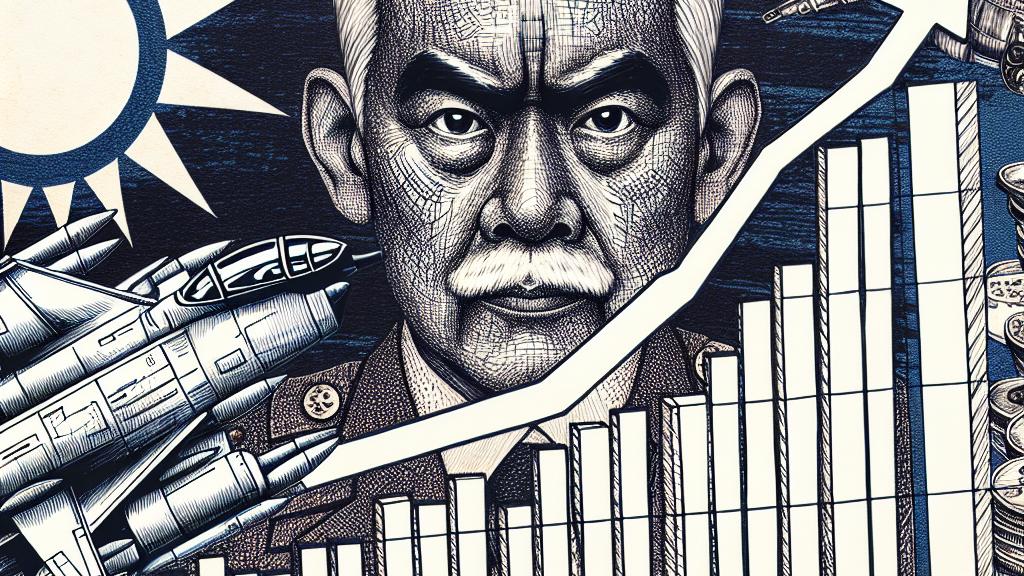Taiwan's Defence Budget Soars: Outrunning GDP Amid China's Rising Shadow!
Overview
- Taiwan plans a 7.7% increase in its defence budget, surpassing expected economic growth.
- Investment focuses on acquiring new fighter jets and increasing missile production.
- The defensive posture is driven by escalating tensions with China and its military activities.

Significant Rise in Defence Spending
Taiwan's government is poised to significantly elevate its defence budget by 7.7% for the upcoming fiscal year, bringing total expenditures to an estimated T$647 billion (approximately $20.25 billion). This increase not only reflects Taiwan's determination to bolster its national security but also comes in direct response to China's aggressive military stance that has been increasingly evident over the last few years. Notably, Taiwan's defence spending is set to outstrip its projected economic growth of 3.26% for 2025, indicating a strong prioritization of military readiness in an unpredictable geopolitical climate.
Focused Investments for Modernization
Central to Taiwan's defence strategy is a concerted focus on modernization, with a notable T$90.4 billion allocated specifically for enhancing its arsenal through the acquisition of advanced fighter jets and a boost in missile production capabilities. This funding is part of a broader military investment plan totaling T$240 billion, initiated in 2021, to systematically upgrade Taiwan's armed forces and prepare for any potential threats from China. The Taiwanese government aims to increase its defence spending to about 3% of GDP over the coming years, exercising a measured approach while ensuring that the island remains well-protected without engaging in an arms escalation with Beijing.
Complexities of Political and Military Relations
The political environment in Taiwan adds layers of complexity to its defence spending initiatives. The ruling Democratic Progressive Party (DPP) must navigate parliamentary dynamics to secure the budget’s approval, especially as it faces opposition from the Kuomintang party. Concurrently, Chinese military activities, which include frequent aerial incursions and exercises near Taiwan, highlight the urgency and necessity behind these defensive measures. Moreover, escalating predictions from U.S. military leaders regarding imminent conflict with China by 2025 reinforce Taiwan's imperative to solidify its defensive capabilities. The potential for increased regional tension places immediate pressure on Taiwan's government, making its defence budget not merely a national concern, but a pivotal element in the stability of broader Asia-Pacific geopolitical relations.

Loading...